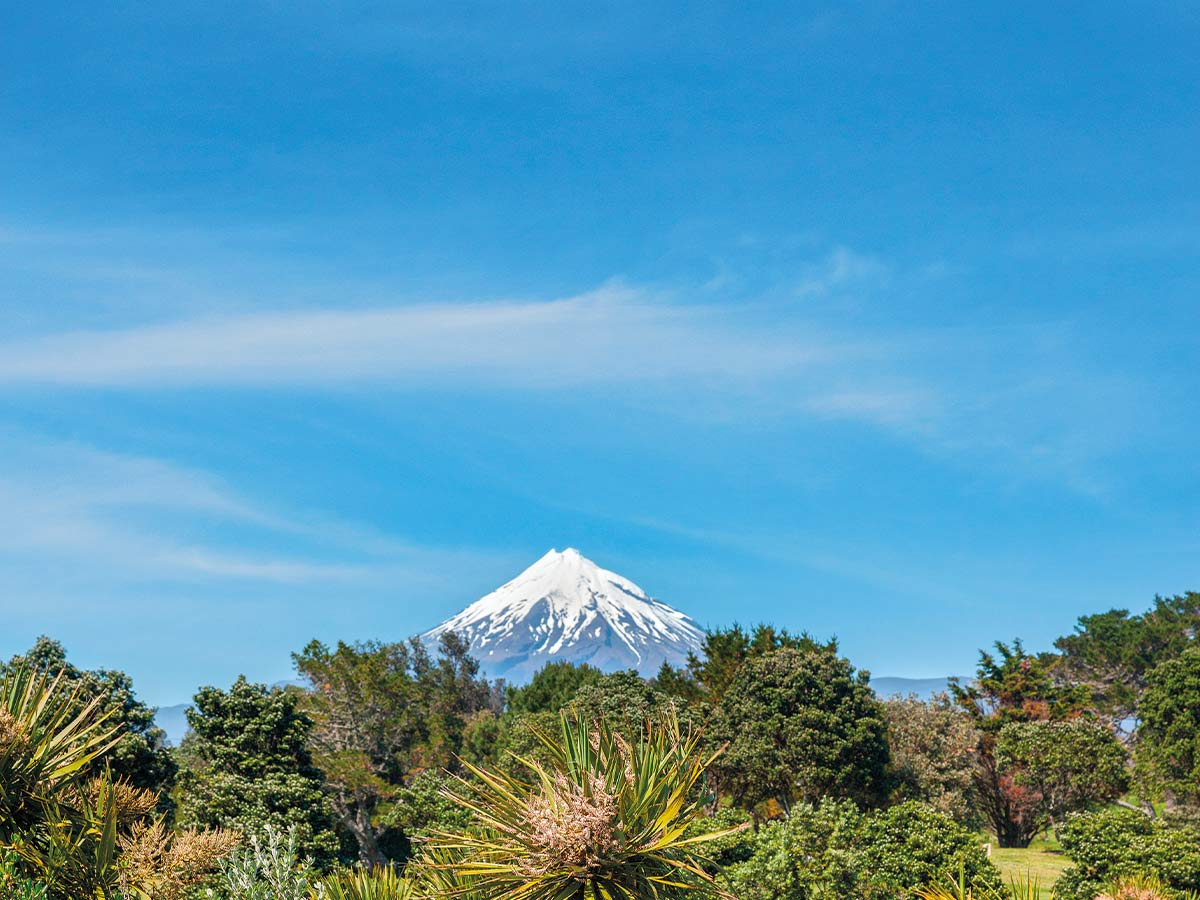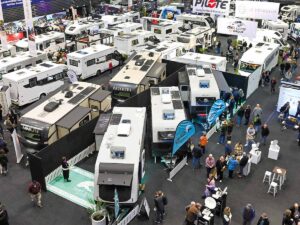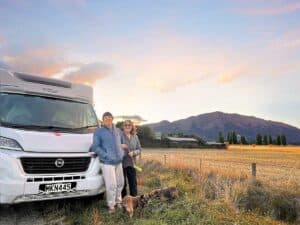Keen traveller and writer Peter Mead has spent extensive time motorhoming both in Australia and New Zealand. In the first of a series of articles recounting fresh experiences, Peter shares one of his first trips upon settling back in Aotearoa.
After 20 years living in Oz, Shelley (my perpetual wife) and I returned home to New Zealand, bought a 6.8-metre Kea Dreamtime and set out with the supreme confidence that only know-it-all, inexperienced retirees can possess.
We’d spent years travelling in Australia’s outback where our accommodation was a rooftop tent, our kitchen a $20 Kmart butane stove, our toilet equipment a spade for digging holes in the scorching red sands of the central Australian desert, and where fuel prices in remote roadhouses were so exorbitant, they almost equalled the wallet-wrenching absurdity of New Zealand prices.
So, travelling around New Zealand in a large motorhome with an inside loo and a satellite TV was like asking us to go glamping in a country mansion on wheels.
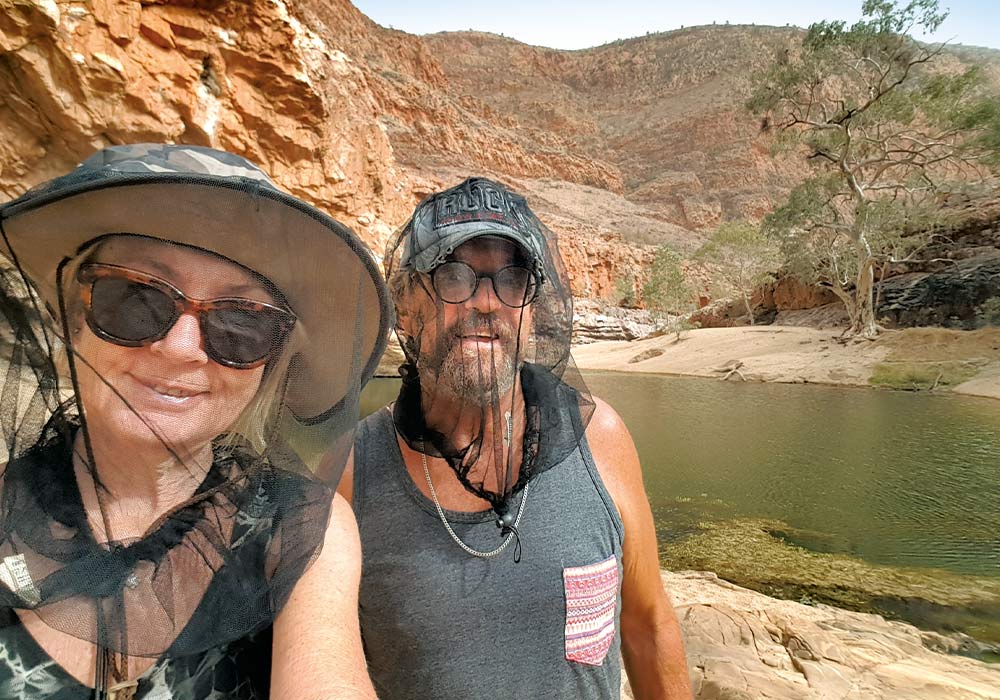
Certain things annoy me: queues (any type, anywhere), loud food chewers, and slow, inconsiderate drivers (especially slow, inconsiderate motorhome drivers). No way was I going to be one of the latter.
Shelley, however, had other ideas. “Slow down,” she yelled as we approached our first 75kph corner at 85kph. Something clattered in the back, a cupboard swung open and one of Shelley’s precious wines (Nana’s juice, as the grandkids call it) rolled across the floor. She swore at me. It had been hours since she swore at me, so it took me by surprise.
“Must be a faulty latch,” I said, resisting the urge to ask if she checked the cupboards before we left. Rooftop tents don’t come equipped with cupboards, so this was a new experience. We were less than five minutes into our first journey and only 15 minutes from our first destination.
Lake Rotomanu is a picturesque spot on the outskirts of New Plymouth and has a small freedom camping area suitable for drivers learning how to back large motorhomes into the exact spot that Shelley decides will give the optimum view. And optimum it was, with the lake only metres away. Ducks waddled up to say hello, swallows swooped and darted overhead, and the world seemed delighted to have us there.
We strolled around the lake and then down by the Waiwhakaiho River towards the sea. We said hello to dogs taking their humans for a walk and passed an area that, although not signposted, seemed to be designated for men playing with toy yachts.
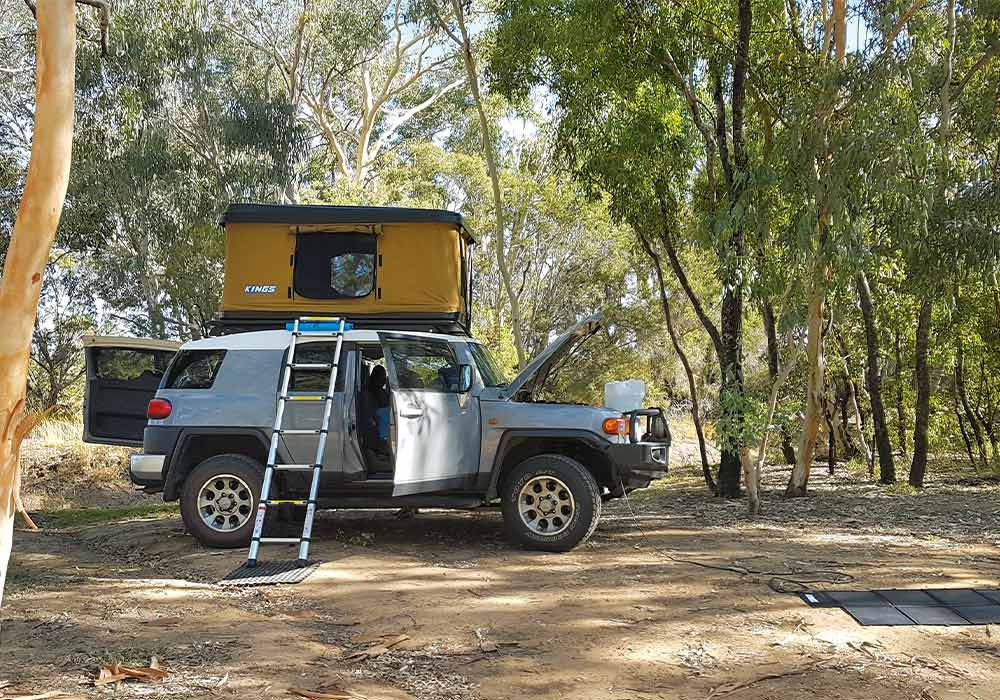
“How boring,” remarked Shelley. This is from a person who enjoys assembling and then immediately destroying 1000-piece jigsaw puzzles. Cyclists dinged their bells behind us and raced past dressed in bike shorts and designer racing shoes even though they were on e-bikes and were in no danger of working up a sweat. We stopped to chat with whitebaiters who were all friendly until we asked if this was a good spot. Then their faces went blank, and they commented on the lovely weather.
The next morning, we headed south at a more sedate pace, especially around corners. I’ll do my best not to hold people up but decided our safety, our cupboards, and Shelley’s wine were more important than their impatience. Besides, we were in no hurry to be anywhere, which I think will be one of the joys of motorhoming. We had joined the ranks of what Aussies call Grey Nomads. Not sure if that’s a saying here.
First up was a visit to a dump station. Motorhome ablutions was something I’d never seen mentioned in any sales brochure, but the experience was more pleasant than a visit to the dentist or following your dog around a lake with a plastic doggie doo bag in hand. As we had purchased a second-hand vehicle, we thought it wise to clean out the grey water tank. To accomplish this, we poured detergent down the sink and half-filled the tank with water figuring that the sloshing around as we drove would act like a dishwasher.
We sloshed around for an hour or two before arriving at Lake Rotokare, east of Eltham. Rotokare is a kiwi sanctuary (no doggie doo here) and a little piece of paradise. Once again, we found a great spot with an unobstructed view across the lake.
A pūkeko, indifferent to our arrival, strutted across a small lawn fronting the lake, which apart from this small area, was surrounded by native bush. Two black swans glided down onto the surface while a raft of brown teal ducks were on a tiki tour near some rushes. Somewhat strangely, a small island of raupō and flax glided silently towards us powered by a light breeze. We had to watch for a while to make sure we weren’t imagining things.
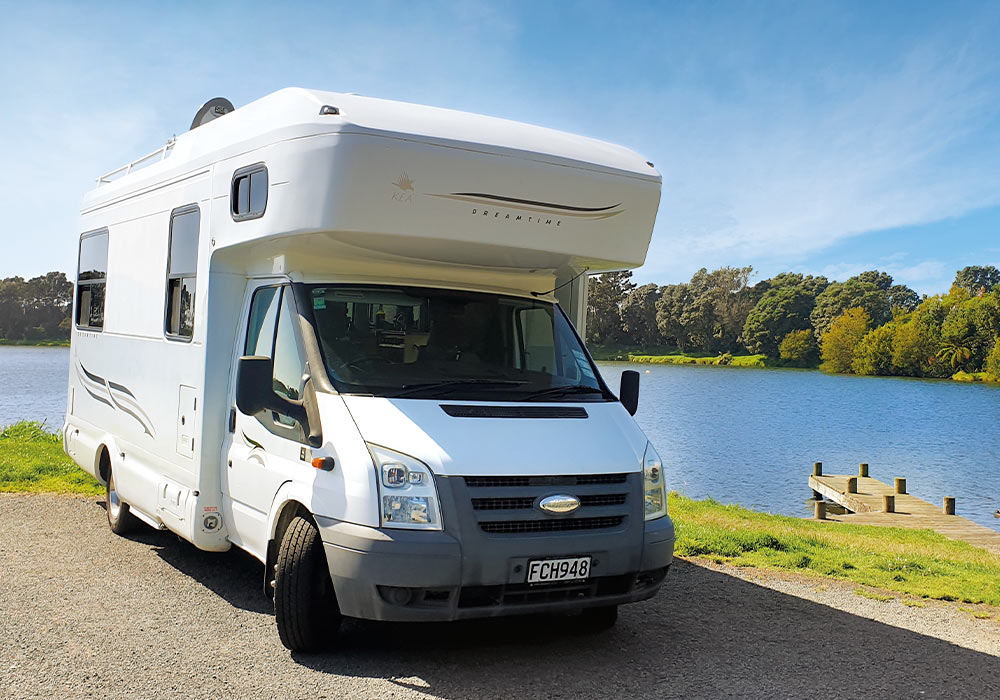
Walking into the bush felt like being enveloped in a cool but welcoming hug from a long-lost friend. We’d forgotten the primordial feel of native New Zealand bush, the rich claggy smell of the undergrowth, and the sound of numerous birds greeting each other in the dappled light. Fearless robins scratched the pathway before us looking for treats and when we scrapped the path with our boots, they came closer to see if we’d found a tasty worm or beetle.
Saddlebacks (a bird I’d never seen before) with their distinct red saddle-like patch, squawked loudly at our intrusion then played an ineffectual game of hide and seek, constantly moving behind small branches where they thought we couldn’t see them. Wood pigeons viewed us from high in the branches then noisily flew off to find something more interesting.
After dinner, I finished doing our dishes, pulled out the plug and watched the water not drain. I looked at the grey water tank level indicator and it indicated full. Strange. Just like magic, the half tank was now a full tank. Not sure how this could be but however it happened, Shelley thought it was my fault. I thought it was my fault also, but I wasn’t about to admit it.
She didn’t admit to not latching the cupboard, I didn’t admit to over-filling the grey water tank – it gives our marriage balance. We now had a problem as there are strict rules against emptying grey water tanks into the bush in this avian paradise.
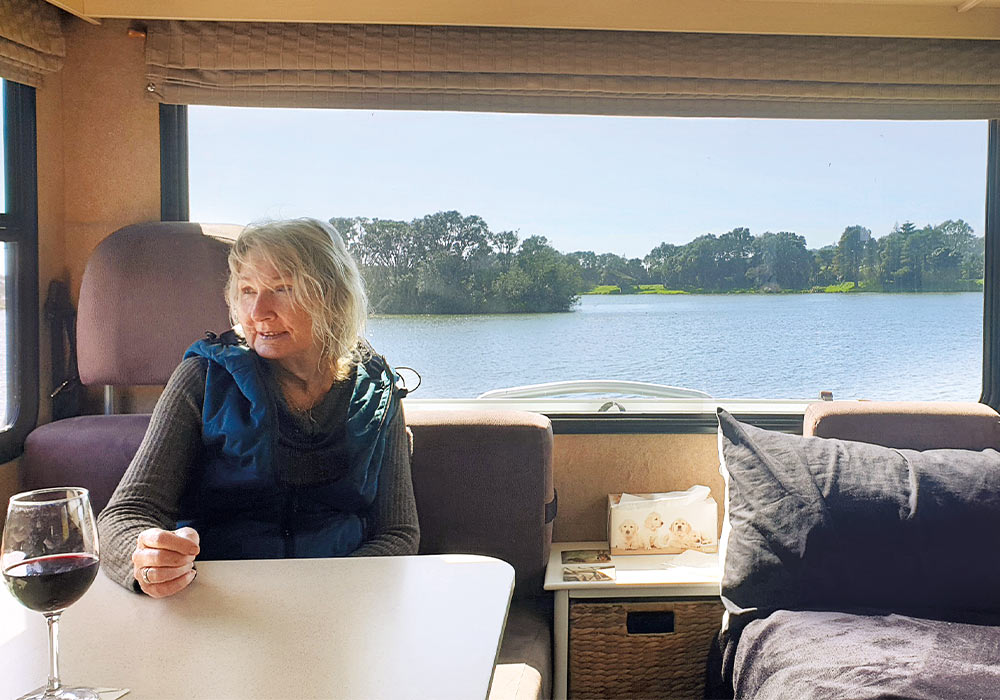
One thing I can say about Shelley is that she is resilient and tough and resourceful – that’s three things I know, but never mind. She’s all those things in one little package. She’d survived camping in the desert in 40° heat with only a damp rag to boil potatoes in, before washing herself with the leftover moisture. She would survive this.
After telling me how useless I was she said, “I packed a bucket, so we’ll fill it to use as a sink then pour the water down the public restroom sink. Instead of a shower, I’ll use the bucket again and sponge myself down.”
It was a great idea except I had removed the bucket and left it at home. I mean, why would we need a bucket when we’re camping in a mansion on wheels? Shelley was not amused.
We found a dump station in Normanby the next morning. It was a joyful moment and we realised that dump stations are our friends and not to be sniffed at.
After only three days, we were already loving life in our new motorhome but I can see this know-it-all desert camper has a lot to learn about motorhoming. And Nana Shelley needs to store her juice more securely.

